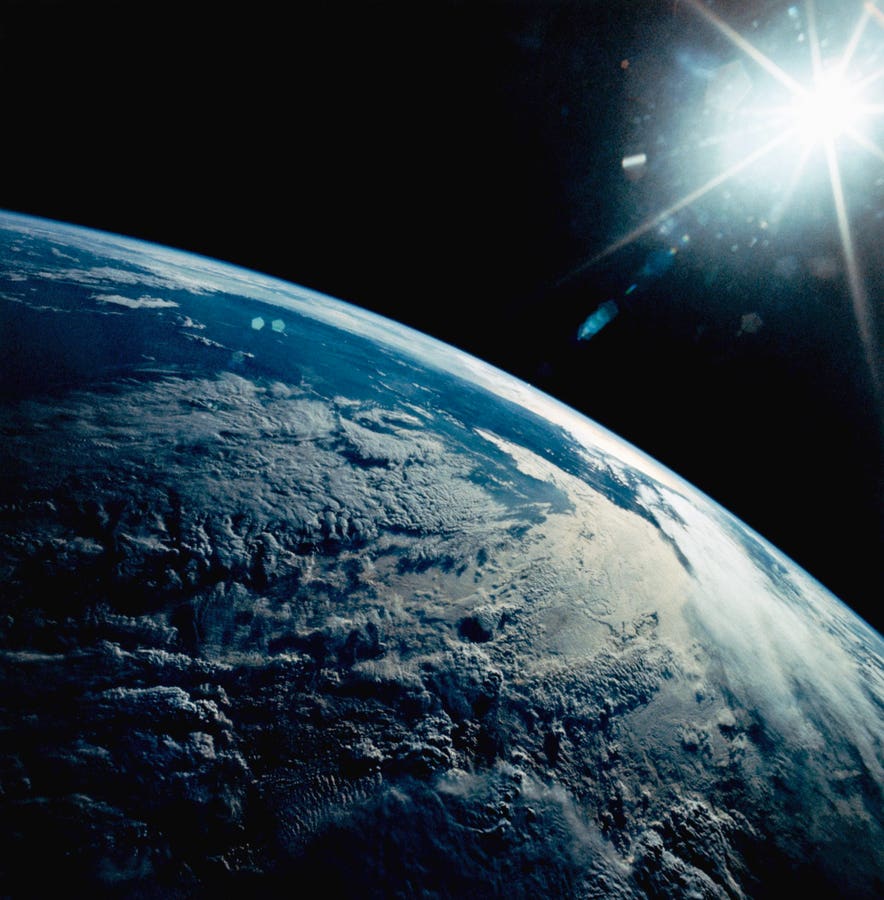A view of Earth from the Space Shuttle Discovery shows late afternoon sun on the Andes Mountains, … More
One of the more counterintuitive explanations for how Earth came to be what it is today may have just been overturned. The popular theory has been that the source of our planet’s abundant water is asteroids bombarding our world billions of years ago, but new research finds Earth may have formed with all it needed for the formation of water molecules.
A research team from the University of Oxford analyzed a rare type of meteorite that is known to have a composition analogous to prehistoric earth over 4 billion years ago. That composition includes an amount of intrinsic hydrogen greater than what scientists previously expected was present on Earth during its formation.
Hydrogen, as the ‘H’ in H2O, is obviously a key component in the creation of water. The leading assumption has been that Earth was not initially rich enough in hydrogen to support the formation of water. The theory goes that the hydrogen required for water to become so abundant here had to instead be “delivered” by the frequent bombardment of hydrogen-toting asteroids during Earth’s first 100 million years or so. This was a period when the inner solar system was much more crowded with cosmic debris and such collisions were relatively nonstop.
But the composition of LAR 12252, a meteorite found originally in Antarctica, points to plenty of native hydrogen being present on Earth, even without so much violent “help” from overzealous ancient asteroid visitors.
The meteorite used in the study – LAR12252 – when it was discovered in Antarctica.
“This research provides vital evidence to support the theory that water on Earth is native – that it is a natural outcome of what our planet is made of,” said Oxford student Tom Barrett, who led the study, in a statement.
The study has been published in the journal Icarus.
Settled Science?
The case that Earth came ready-made with its own water production means isn’t quite a slam dunk. Other researchers have analyzed similar meteorites and come to the conclusion that they are indeed evidence of an extra-terrestrial water delivery vehicle.
A resulting subject of debate is whether such meteorites actually brought all the hydrogen with them, or did they actually pick it up when they smashed into a hydrogen-rich early Earth?
So the debate will likely continue, but the new study from Barrett and colleagues provides more evidence that Earth likely would have wound up wet no matter what, even if it may have been helped along by asteroids.
Other theories of Earthly water origins abound too. They include everything from a volcanic source to earth outgassing water molecules as it cooled shortly after its formation.








